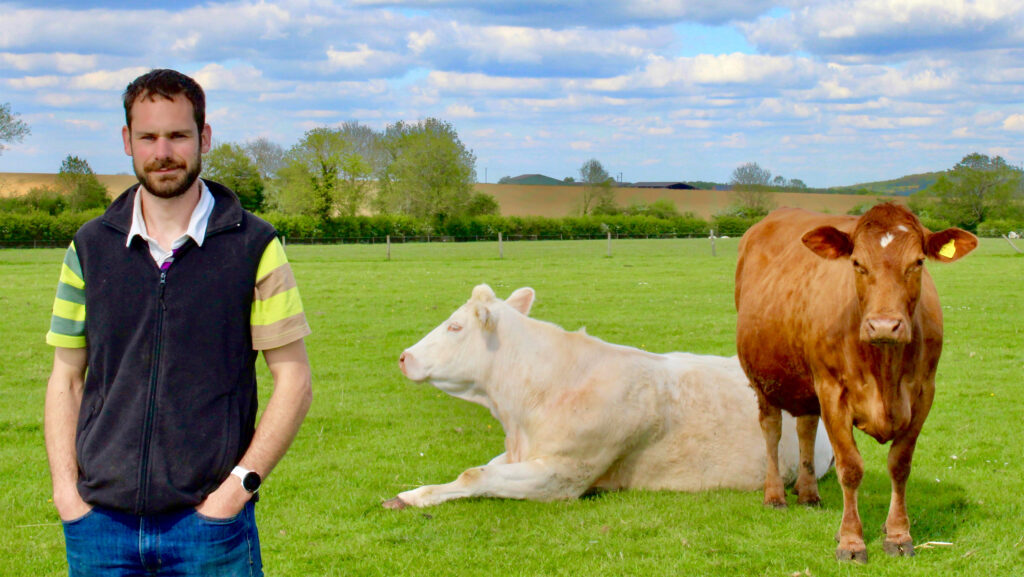Frustrated farmer plants spring wheat after SFI delay

© Supplied by Richard Heady
Buckinghamshire mixed farmer Richard Heady has decided to plant spring wheat on fields originally earmarked for the Sustainable Farming Incentive (SFI), citing delays in the application process as a key reason for the change.
Mr Heady, who runs a mixed 400ha farm near Milton Keynes, was part of the pilot scheme for the SFI, but found himself in limbo after submitting an application for the 2024 scheme in December.
Despite waiting more than four months for a response from the Rural Payments Agency (RPA), his application remained under review with no clear timeline for approval.
But Defra closed the scheme to new applicants on 11 March, leaving Mr Heady’s plans in turmoil.
See also: Farmers share how bombshell SFI closure will affect them
“We were hoping to receive some financial relief from the SFI, especially with the transition away from the Basic Payment Scheme (BPS),” said Mr Heady.
“We needed that guaranteed income to help with cashflow, but with no certainty over the SFI, I couldn’t afford to leave fields unused.”
Facing mounting financial pressure and the prospect of leaving his fields bare, Mr Heady opted to plant spring wheat on about 100ha – land which he had hoped to put into SFI options.
He used farm-saved seed, having no time to source new stock due to the tight planting window. The decision, he admits, was a difficult one as it disrupted his planned crop rotation.
“We were planning to split the land into thirds – winter crops, spring crops, and enhanced overwinter stubble,” Mr Heady explained.
“But the delay in processing our SFI application left me no choice. I had to act fast to secure some income for the farm.”
Despite the setback, Mr Heady still hopes his application will be processed, although he fears it may be rejected or delayed further due to potential conflicts in the paperwork.
He is also concerned about the environmental impact of planting spring wheat, as he had originally planned to improve his soil through cover crops and stubble.
Mr Heady, who supports three families through his farm, expressed frustration with the current situation, highlighting the challenges of replacing Basic Payment Scheme income.
With arable crop prices weak and grain storage at full capacity, cashflow remains a major concern.
He added that farmers are being urged to deliver environmental benefits through schemes like the SFI, yet delays in implementation make it harder for them to plan for the future.
Podcast interviews
Last month, the Farmers Weekly podcast interviewed two farmers who have also been forced to change the way they farm due to the abrupt closure of the SFI scheme in England.
Mike Purnell, an arable farmer based in central Bedfordshire, explained that he had decided to plant spring barley in fields intended for the SFI’s NUM3 legume fallow option after he was unable to submit his application in time.
Upland livestock producer Claire Wise, from County Durham, was also about to press the button on her SFI application when the scheme was suddenly closed.
Defra response
A UK government spokesman said: “We inherited farming schemes which were underspent, with farms missing out on millions of pounds.
“The government proudly secured the largest budget for sustainable food production in our country’s history.
“We now have record number of farmers into schemes and more money being paid to farms than ever before.
“As a result, we have now hit the maximum limit of the scheme and have stopped accepting new applications.
“The government will reopen a new and improved SFI scheme with more details coming this summer.”
